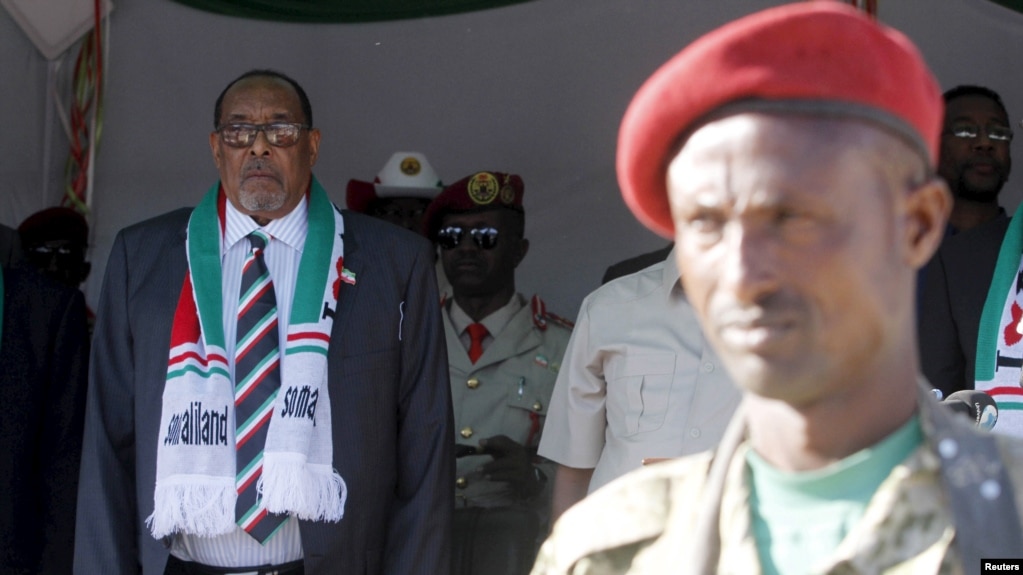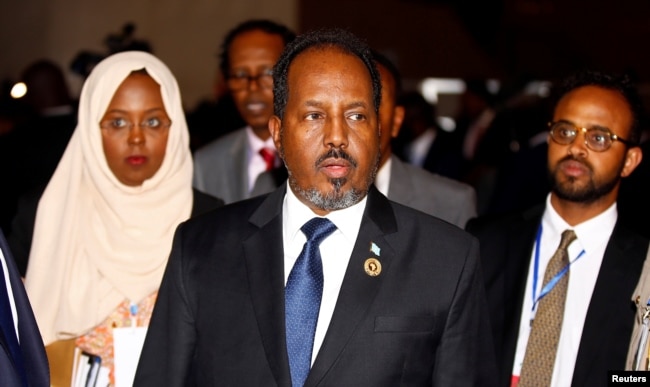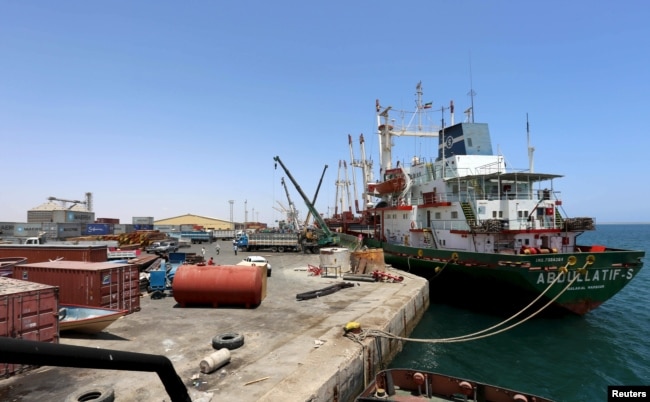Facebook Video Circulates Showing 260 Somali and Ethiopian Migrants and Refugees Abused, Held Against Their Will by Gangs in Libya
Switzerland - The UN Migration Agency (IOM) is deeply concerned by the situation of approximately 260 Somali and Ethiopian migrants and refugees, including many children, held captive by smugglers and/or criminal gangs in Libya. In a video posted on Facebook on 9 June, hundreds of emaciated and abused Somalis and Ethiopians are seen huddled fearfully in a concrete room. Other nationalities may also be present.
Speaking on video to a Somali journalist based in Turkey (who recorded the call he received from the criminal gang), the migrants and refugees, who are sitting on the floor in a crowded space, say they have been beaten and tortured. Some report that their teeth have been removed, their arms broken and that none of them have been given any food. They explain that women have been put in different cells, where they are afraid that they are being further abused both sexually and physically. Parents and other relatives of the captive migrants and refugees are also receiving short video clips via social media, where they are being asked to pay between USD 8,000–10,000 or their child or relative will be killed. Some of the individuals in the videos have been missing for up to six years according to their families in Somalia. The exact location where they are being held is not yet known.
“I have being here one year. I am beaten every day. I swear I do not eat food. My body is bruised from beating,” said one of the captives in the video. “If you have seen the life here you wouldn’t stay this world any more. I didn't eat the last four days but the biggest problem is beating here. They don’t want to release me.”
Throughout the video there are exchanges between the journalist and the person moderating on site in Libya. In one instance, he introduces the journalist to a young visibly starving man with a large concrete block weighing down on his back, as punishment for his family not paying his ransom.
“I was asked for 8000 US Dollars,” said the young man, when asked by journalist why the criminal gang were punishing him. “They broke my teeth. They broke my hand. I have being here 11 months… This stone has been put on me for the last three days. It’s really painful.”
“I was here one year,” said one captive on the video from Ethiopia pleading with the journalist for help. “We want help. My brother, my brother, we are dead! We are beaten 24 hours a day, brother I am begging you! Brother I beg you, do whatever you can do. I can’t sleep, my chest hurts so much because they beat me with big pieces of steel every hour. They put us out in the sun. They do not give us food for days. Brother, we want you can take us back to our country!”
“Seeing a Facebook video of innocent migrants and refugees who have been abused and tortured is deeply concerning. IOM condemns the way that criminal gangs use social media in their shocking abuse of people held against their will and to extort money from their families back home,” said Mohammed Abdiker, IOM Director of Operations and Emergencies, when learning of the situation. “This is a global problem where a smuggler or a criminal gang can easily use digital platforms to advertise their services, entice vulnerable people on the move and then exploit them and their families. It is high time that social media and tech companies recognize the extreme harm that is occurring because of their failure to monitor and react to situations of grave human rights abuses – leading ultimately to murder – that are being shared through their channels.”
“The cruelty of the human traffickers preying on vulnerable refugees and migrants in Libya does not seem to have a limit,” said Amin Awad, UNHCR Director for the Middle East and North Africa. “UNHCR is concerned about the plight of these asylum seekers and calls for their immediate release in collaboration with the Libyan authorities. We abhor the graphic images circulated widely and the heinous abuses perpetrated by these groups.”
Migrants and refugees travelling to Libya from the Horn Africa are frequently abducted in the Raybana area on the country’s southern border after crossing from Sudan. The area is very insecure with smuggling gangs from across the region preying on vulnerable people.
The relevant authorities are aware of this inhumane situation and are working to locate and assist the individuals in the video. IOM and partners will work with the government authorities to urgently secure the release of these migrants and refugees and provide critical support, including medical and psychosocial, as well as transport if they want to return home.
*Please note that IOM has not shared the Facebook video to protect the migrants and refugees from retaliation by their captors
For further information, please contact Leonard Doyle, IOM, Tel: +41 79 285 7123, Email: ldoyle@iom.int
International Organization for Migration:
Copyright © IOM. All rights reserved.





